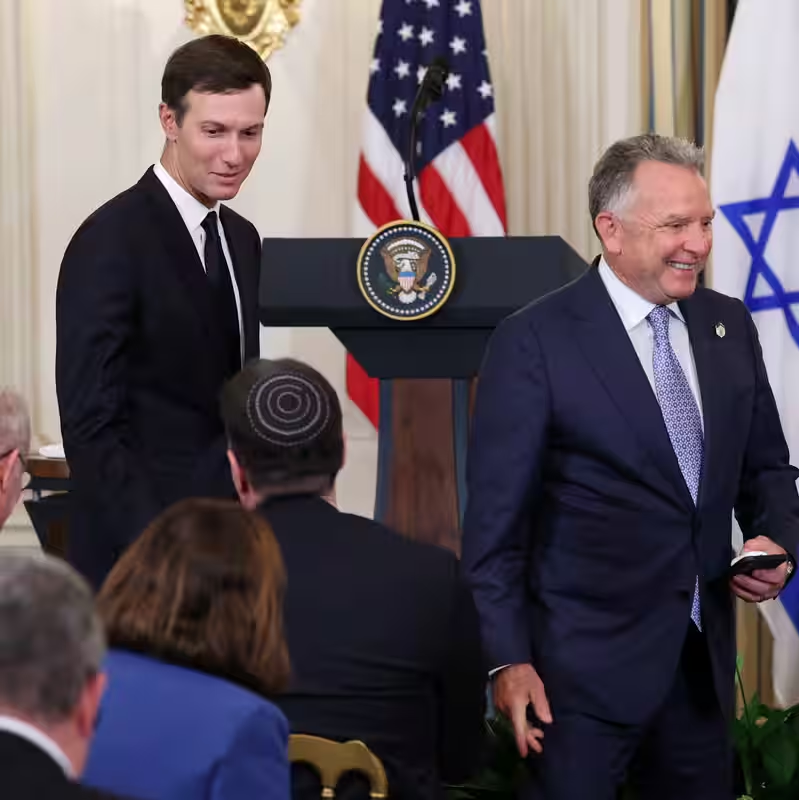In a dramatic twist to the ongoing Middle East peace efforts, Jared Kushner and Steve Witkoff—key architects of former President Donald Trump’s Middle East strategy—are expected to join high-stakes mediation talks between Israel and Hamas. Their involvement signals a potential shift in U.S. diplomatic posture and reignites debate over the role of informal envoys in one of the world’s most volatile conflicts .
Why Kushner and Witkoff?
Jared Kushner, Trump’s son-in-law and former senior adviser, was the driving force behind the 2020 Abraham Accords, which normalized relations between Israel and several Arab nations. Steve Witkoff, a New York real estate investor and Trump confidant, has recently emerged as a behind-the-scenes player in Middle East diplomacy—reportedly shuttling between regional capitals to lay groundwork for ceasefire negotiations .
Both men are said to be acting with the tacit support of the current administration, though they do not hold official government roles. Their return to the diplomatic arena underscores the persistent influence of Trump-era foreign policy networks—even as formal U.S. channels remain cautious.
What’s at Stake in These Talks?
The Israel-Hamas conflict, now in its second year since the October 7, 2023 attacks, has claimed tens of thousands of lives and left Gaza in ruins. Previous ceasefire attempts have collapsed over disagreements on hostage releases, humanitarian aid access, and long-term security guarantees.
Kushner and Witkoff are reportedly pushing a two-phase proposal:
- Immediate humanitarian pause: Release of remaining hostages in exchange for expanded aid corridors and partial Israeli troop withdrawals.
- Long-term political framework: Revival of Trump-era concepts, including economic investment zones in Gaza and regional security pacts involving Egypt, Qatar, and the UAE.
Skepticism Meets Hope
While some regional analysts welcome fresh mediators, others question the legitimacy of non-governmental actors shaping war-and-peace decisions.
“Backchannel diplomacy can open doors,” said Dr. Leila Farah, a Middle East policy fellow at Georgetown University, “but sustainable peace requires transparent, multilateral frameworks—not billionaire emissaries with political agendas.”
Still, Israel’s war cabinet has reportedly agreed to hear the proposal, and Hamas sources in Doha have not dismissed it outright—suggesting both sides may be desperate enough to entertain unconventional paths.
How This Fits Into Broader U.S. Strategy
The Biden administration has maintained that official negotiations must be led by intelligence and diplomatic professionals. Yet with public pressure mounting and the 2024 election looming, allowing Kushner and Witkoff to test the waters may be a low-risk gamble.
Notably, both men have deep ties to Gulf leaders who could play pivotal roles in postwar reconstruction—a factor that may give their involvement unexpected leverage.




